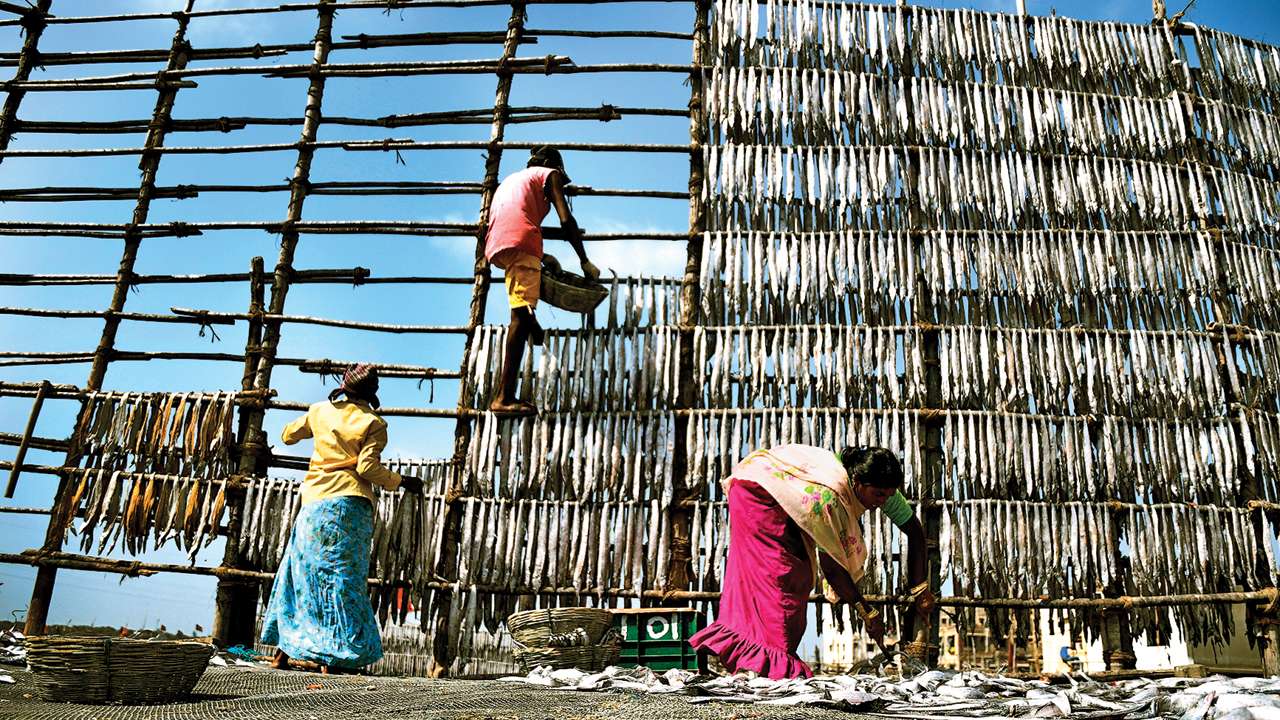
A search for simplicity dominates this election. Quick, easy definitions to tell right from wrong — who are the good guys and who are the bad guys.
Yet, such definitions are rarely effective at tackling problems in an increasingly complex world. India’s marine fisheries are a prime example. In this age of being “woken” to issues of sustainability, people are still looking for quick fixes to say whether something qualifies as sustainable or not.
In India, sustainable fishing is a key, if contested concept. Much of the conflict over the definition comes from the fact that we have little reliable quantitative data to scientifically “prove” how fisheries are doing. Unlike many developed countries, our marine fishermen are scattered across villages on 7,500 km long coastline.
Monitoring this will require manpower and investment into surveillance at a large scale. At present, we have little evidence to clearly define where one fishery ends and the next begins. Still, authorities are expected to make management decisions that affect fisheries not only at present, but into the future. The absence of quantitative fisheries data is paralysing to some scientists. They suggest it is too early to discuss sustainability in the context of India’s fisheries.
Since much of our science is painted with the colours of the west, it is difficult for us to rely less on numbers and more on indigenous knowledge. Sustainability in the West is chalked up to achieving an optimum — the maximum sustainable yield.
This number is derived for each species individually. It represents the maximum number of individuals that can be hauled out of the ocean year after year at a predictable, constant rate. But India’s fisheries have hundreds of species. They constantly interact, and no matter how specialised the equipment, our fishermen find themselves unable to catch only one species at any given time.
Our tropical oceans live up to their reputations of being rich in biodiversity. What is the point of getting species based optimum yields if there is no way to ensure that one catches only one species at a time? This is not an issue of India alone. Scientists across the world have encountered a lack of concrete generalisable definition of fisheries’ sustainability due to unavailability of quantitative data in developing countries with complex, diverse fisheries. Some, like RE Johannes, struggled with this idea, until they realised that fishermen have their own view on maintaining the marine environment, and can create management regimes that are not based on resource scarcity models, unlike scientists.
Johannes argued for context-specific, data-less management. Such management would depend on traditional knowledge gathered by local communities, augmented by scientific experience from other, similar systems. The answer to this sustainability question lies in the realisation that the lack of quantitative data does not mean the absence of knowledge. Fishermen know a lot about their livelihoods, although they may not maintain quantitative records. This knowledge is based on local realities, and built on the experience of previous generations.
It is also a very integrative knowledge that examines the relations between species. Some may dismiss this knowledge as being very context specific, but I would argue that context is exactly what matters when trying to maintain sustainable fisheries. More specifically, given the diversity of India’s marine life and fishing practices to harvest it, my research suggests that there cannot be a single definition or plan of action to maintain fish catches over time. Instead, harnessing fishermen’s knowledge to create contextually appropriate practices that can adapt to local, changing conditions is the key to having healthy fisheries. What this means, in reality, is that there would be no one-stop solution. Instead, one would need to know how fisheries work in a given location.
My experience suggests that one ought to look for certain practices, such as short fishing durations, strategies to limit quantity or type of catch and locally implemented regulations on when and where to fish, as characteristics of more sustainable fisheries. What developed countries achieve with annual reviews of the numbers of different species of fish caught, can be achieved in developing countries through localised meetings between fishermen, scientists and government.
The short time frame over which each management plan is applied could also offer opportunities for greater flexibility in an era of environmental and socio-economic change. As fishing communities and interest groups raise these issues in the public eye, perhaps the foundations for a more universal idea of sustainable fisheries can be constructed. Until then, it would be key for us to offer some mental space to these issues, like ones that will have a more real and lasting impact on our lives, than any election rhetoric or propaganda could. These life and death issues used to be able to make or break elections. Now they are relegated to the sidelines, from where they threaten to wreak havoc, unless we pay attention to our behaviour and our votes.
Author is the co-founder of InSeason Fish